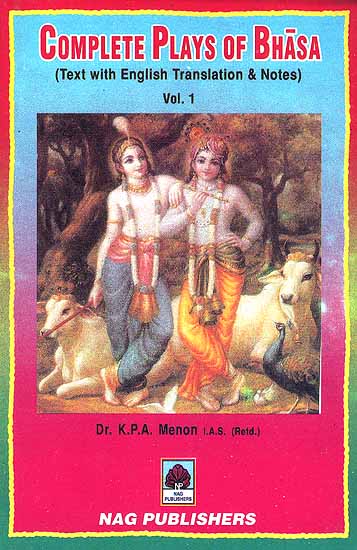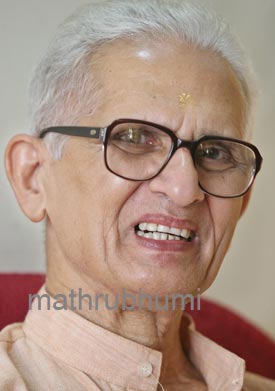January 2, 2012
I have loved going to Amma's village ever since I can remember. Not only because such trips, by default, meant freedom from school in the form of vacations, but also because the days spent there entailed more freedom and lightly imposed rules under the grandmas, uncles and aunts. So habitually, I was quite excited about a short visit to the native land as the first activity of the new year.
The explicit purpose in the logbook should read: special ritual at the temple.
The process of physically getting to the village has undergone, however, to borrow MBA lingo, a paradigm change!
Amma has aged and I have spoiled my risk ignorance capacity by living in Texas. This horrible combination has made the hour long drive traumatic.
You see, Amma is an expert driver!
Her expertise level gives her the confidence to fold up both the side view mirrors and consider the rear-view mirror as just a hanger for the plush teddy bear!
It is the bad roads and other drivers that gang up against her expertise!
The trip involved me producing a variety of sound effects ranging from extended humming as we shaved very close to randomly appearing sidewalks, squeals as we shudder over yet another speed breaker and moan as we find ourselves one more time in the wrong lane.
The FM stations even at their loudest failed to drown my paranoia.
As we finally parked outside a granduncle's house, we realized that we have timed ourselves to intrude into the afternoon naps.
It was new year's day. It was a Sunday. Naps were customary.
A German couple driving around on a scooter were blissfully unaware of the custom. Luck for us, the loud booming barks of the dog stirred the folks to the front door. Turns out no one was sleeping. There was a water pipe problem that was being fixed on war footing. But guests are gods, water works pause, tea and salty biscuits.
Next we proceed to kunjamma's (Amma's younger sister) house. This house, 20 years ago, had to be reached by walking on a stone slab bridge across a clear water channel. The channel has become a tar road now. We drove right to the door. Visiting relatives in the village invariably involves ransacking their backyards. The plunder this time: brinjals and tapioca.
Amma suggests that we walk to the lake in the hour we have to spare before reporting to the temple. Uncle and cousin join us. What I remembered as paddy fields are now simply fields of unattended undergrowth interrupted by trees, mostly coconut. The 'paddiness' has been squeezed out of them by truck loads of new soil.
A black cow was being served by a team of white crane beauticians. The lake has been forced back at least half a kilometer. Coir making used to be the main industry of the area, now it is sand extraction.
Hedges of wild flowers and wild varieties of garden flowers line either side of the narrow road which abruptly ends its tarred form and becomes muddy.
Uncle and Amma fondly recall childhood stories. They would trade drinking water with the coir manufacturing laborers for the outer membrane of the coconut that was as good as firewood for the kitchen.
'Punnakka' was collected and sold from the unmonitored properties for a few 'anna's first and 'paise' later. Punnakka oil was cheap and used for oil lamps. 'Karakka' was pickled and served with drinking water for 5 paise.
4 annas were converted to 25 paise. So Amma would use 25 paise to buy stuff worth 2 annas twice and claim 'Anugundmuttai' (Atombomb candy) for the 1 paise. She was clearly headed towards a career in the Reserve Bank of India.
There was talk about the coir industry 'muthalalees' (owners) who had the side business of counterfeit currency printing. But they were clever enough to avoid larger denominations. Maximum value of the notes faked were Rs. 2. Nobody double checked such a low value note. Over a decade, the rich owners got fabulously wealthier.
Amma showed me a wild flower with deep violet petals on the inside. The girls going to school used a pen to transfer that color onto their foreheads to make a 'bindi'. That is all the cosmetic they could afford.
The local children were thrilled when the duck farmers brought over their thousands of ducks into the ponds cordoned off from the lake for decaying coconut husk. Kids would stalk these ducks and steal eggs. A couple of dozen eggs lost this way never bothered the farmer. Uncle talked about very soft-shelled eggs that young birds laid. "Panjimutta" (cotton egg) they were called. The collected eggs were hard boiled by stuffing them into the large cauldrons in which rice was getting parboiled.
"We used to celebrate all the festivals for days," uncle said, "the kids these days don't have that joy!"
"But you didn't have 'kochu tv', pogo channel and cartoon network," I retorted.
Frequently, the discussion switched from the fond memories of childhood to the expression of disappointment at the granduncles and other ancestors who threw away property. Not so smart moves that smart the younger generation especially when they see that those who claimed the land at throwaway prices have developed it with cows and cash cows.
These conversations made me aware of the sweeter chatter of mynas and the calls of greater coucals.
Right next to the bovine, divine. A new temple has sprung up right before the narrow single file path towards the lake splits from the lane. A red dish antenna bigger than the idol draws the attention. "Moorthiyekalum valiya shanthiyula kalam" (A era when the priests are bigger than god)
We queue down the path mindful of the treacherous mud and clandestine ponds on either side. Anjuthengu lakes appears gloriously. For Amma and uncle, it is simply the lake. They never bothered to find out its name. For them it might as well be Vembanadu or Ashtamudi!
Spectacular expanse of dull blue aching towards the sky blue against the coconut green lining. Cousin keeps dropping twigs, dried coconut fronds and stones into the lake to admire its depth. Baby ponds cut off by the ridge we file on, from the mother lake, have received value addition in the form of water lilies. The mother lake fervently beats against the ridge. A sound far deeper and perhaps even ominous than the poet's Innisfree. We manage to disturb a few wild ducks.
At regular intervals along the shore, more ridges intrude the lake. Signs of 'tourist' activities on many of them in the form of cement and concrete benches and round tables. Where our path ends, left over hot pickles and plastic bags from some irresponsible new year's eve celebration.
More memories during the walk back.
As the priest prepares for our ritual at the temple, a furiously contested football match proceeds in the ground outside. The ritual is simply called "vilakku" (lamp). It involves a special offering of more lamps that usual lit for the goddess. The elephant-headed Ganesh is the other deity inside the temple besides the patron lady. At first, as is the norm, offering is made for him. I light one lamp. The lamp is just wick inside an inverted lemon skin filled with oil.
Fifteen such citrus lamps join 15 brass lamps to complete the lighting arrangement. A bunch of joss sticks lit and stuck into a small earthen pot provide the smoke screen.
The 'deeparadhana' (lamp worship) happens at the Ganesh idol first. As the priest prepares the idol behind closed doors, patient reverential wait outside. I notice a small aperture has been carved on the door. Breathing space for the gods at night, perhaps. Unlocked round padlock hangs on the bolt.
After pleasing Ganesh, the bearded young priest, proceeds to the goddess. The wait here lasts over 10 minutes. I notice there is no aperture on the door this time. The godess doesn't tolerate peeping.
The lemon lamps, bunched together, have their flames wildly swaying in each other's eddies like a coalition government.
Thick turbulent smoke emanates from the joss stick pot, rapidly dissipating towards the gods in the sky.
Loud speakers outside fill the village with Nadaswaram's liveliness.
The uncle standing in front of me momentarily losses patience and checks his wrist watch.
But he quickly brings his palms back to the folded 'namaste'.
A variety of 'namastes' in the 20 odd pair of palms waiting for the doors to open. Some have the fingers intertwined. Some have their pinkies in a union breaking away from the rest. Some have cupped the palms waiting to receive. Some are in a frozen applause. Symmetry is a rarity.
A barely audible bell cue from inside the sanctum alerts the boy gripping the big bell's rope.
The doors open.
The idol decorated in sandal paste and jewelry. Menorah like lamps in front of her. Hanging lamps on either side. A polished brass framework behind reflects more splendor.
Bells drown the murmur of prayers. Nadaswaram. Joss sticks. Camphor. Fireworks! A final cracker explosively resonate in the hearts silencing prayers.
Audio visual delight.
When it comes to creating a spectacle, Hinduism has the art perfected over centuries.
Amma brings the 'payasam' and puffed rice offerings while I am outside discussing with my astrologer uncle the irony that a semi-pro like him, who claims to chart how Venus influences people's lives, has never bothered to observe the brilliant Venus that sparkled in the late evening sky.
Crows return to the giant peepal tree as the bats set out dutifully.
We spent the night at my older aunt's at Navayikulam. My first night sleeping outside my bedroom after recovery. Soon after midnight, aunt shrieks out under the influence of some nightmare. Uncle and cousin laugh at this apparently regular occurrence these days. She can't remember the bad dream. "Must be about one of those wretched tv shows you watch!" is one of the quick reasons offered. More logical than the 'ghostly' suggestion made by the astrologer uncle as an explanation a few days ago about her nightmares.
Cold morning. 5: 15 am. No fog. We drive back before traffic picks up. Fajr call rises from the local mosque, loud and clear, warming the air. Local FM stations play a mix of religious songs careful not to upset any faith. Only a handful of joggers and walkers on the highway side. Toll booth operator is awake.
Home by 6:30am.
















